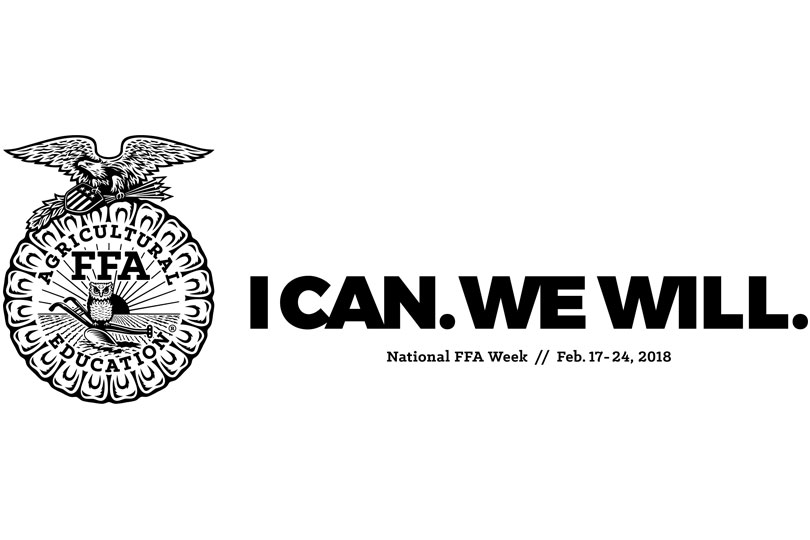By Jessica Domel
Multimedia Reporter
More than half-a-million FFA students and alumni nationwide will celebrate FFA and the impact it, and agriculture, have on our lives next week. National FFA Week officially kicks-off Saturday, Feb. 17, and runs through Feb. 24.
“There’s not necessarily a theme for National FFA Week, but it’s something that a lot of chapters may to choose to do. More of what we do is living out the motto of National FFA. That’s learning to do, doing to learn, earning to live and living to serve,” Taylin Antonick, Texas FFA State first vice president, said. “It’s an opportunity for students not only to serve their communities, but to shine a positive light on agriculture and FFA. We’ll share stories about how our chapters, our members, our local agriculturalists and our supporters who have impacted our communities through FFA.”
National FFA Week is also a time for alumni and sponsors to advocate for agricultural education and FFA.
On Tuesday, Feb. 20, the National FFA Foundation is sponsoring Give FFA Day, a 24-hour campaign encouraging the public to support various needs impacting FFA members.
Wednesday, Feb. 21, is Alumni Day.
FFA members and supporters are encouraged to wear blue and show their FFA pride Friday, Feb. 23.
Local FFA chapters may also choose to give back to their community in their own way throughout the week.
“Some of these activities may include making lunch for the teachers in your high school or conducting a community service day or even doing activities for children in the community, whatever that looks like, which is really an opportunity to live out the FFA motto,” Antonick said.
More than 900 FFA students and teachers in Texas will visit the State Capitol Tuesday and Wednesday.
“They’ll be able to come into the Capitol and learn about the legislation that happens there,” Antonick said. “As FFA officers, we’ll be helping chapter members navigate their way and learn different facts about what happens in the Capitol. It’s a great way to strengthen the bond that we have between youth in agriculture and our legislators.”
FFA week is also an opportunity for students and parents to learn more about the organization and to become involved.
“I know that, for me as freshman, I was terrified of the FFA because I didn’t know what it was about. If someone wants to get involved or is even the least bit interested, that’s when they can go to an ag teacher and ask about possible opportunities for them or even call one of us as state officers and ask how they can get involved,” Antonick said. “That’s something that we always love to be a part of. If there’s local ag teachers or students in the area who are active that they know of, they can get a hold of one of those people, too.”
When opportunities, like learning and growing through FFA approach, Antonick encourages students to say yes.
“I would say the best way to get involved is just start saying, ‘Yes.’ I think that’s the hardest part, sometimes, is that we’re scared of the outcome and so, too often, we’ll say, ‘No,’ to those new opportunities,” Antonick said. “The benefits that we gain from this organization are so great and people don’t even know until they begin to experience them.”
Antonick said FFA is more than showing animals and learning about farming. While it’s an integral part of what FFA does, the organization is a premiere leadership organization.
“When students are introduced to the FFA, they have the opportunity to compete in contests that help them grow as individuals through communication skills, public speaking and learning about developing presentations to do in front community members and school boards,” Antonick said. “We have so many different career options for students. If they want to get into a certain career, they can participate in contests that help them further that career, whether that be animal science, specifically veterinarian medicine, or something like floral design or even science, technology, engineering or math.”
FFA also helps students better themselves and their communities, Antonick said.
“Even more than that, we’re learning how to serve each other and how to be there for each other as a community of students and teachers,” Antonick said. “Hopefully, we can let that impact shine on our communities and our state

